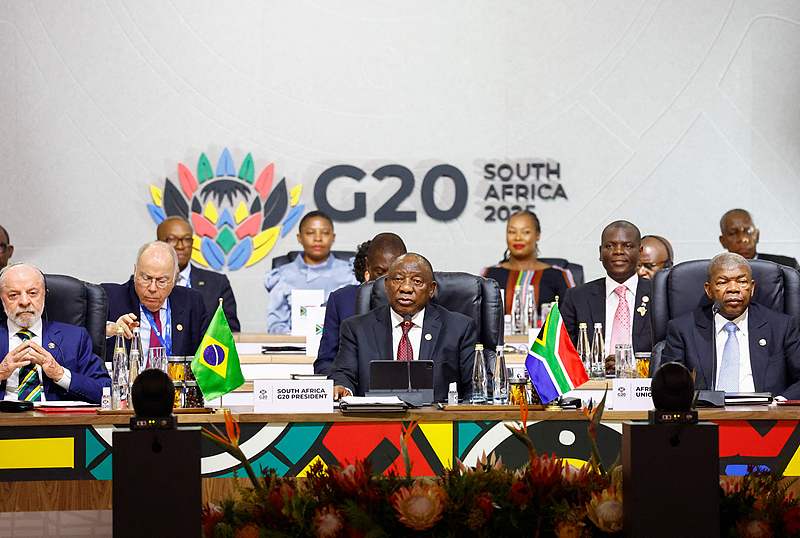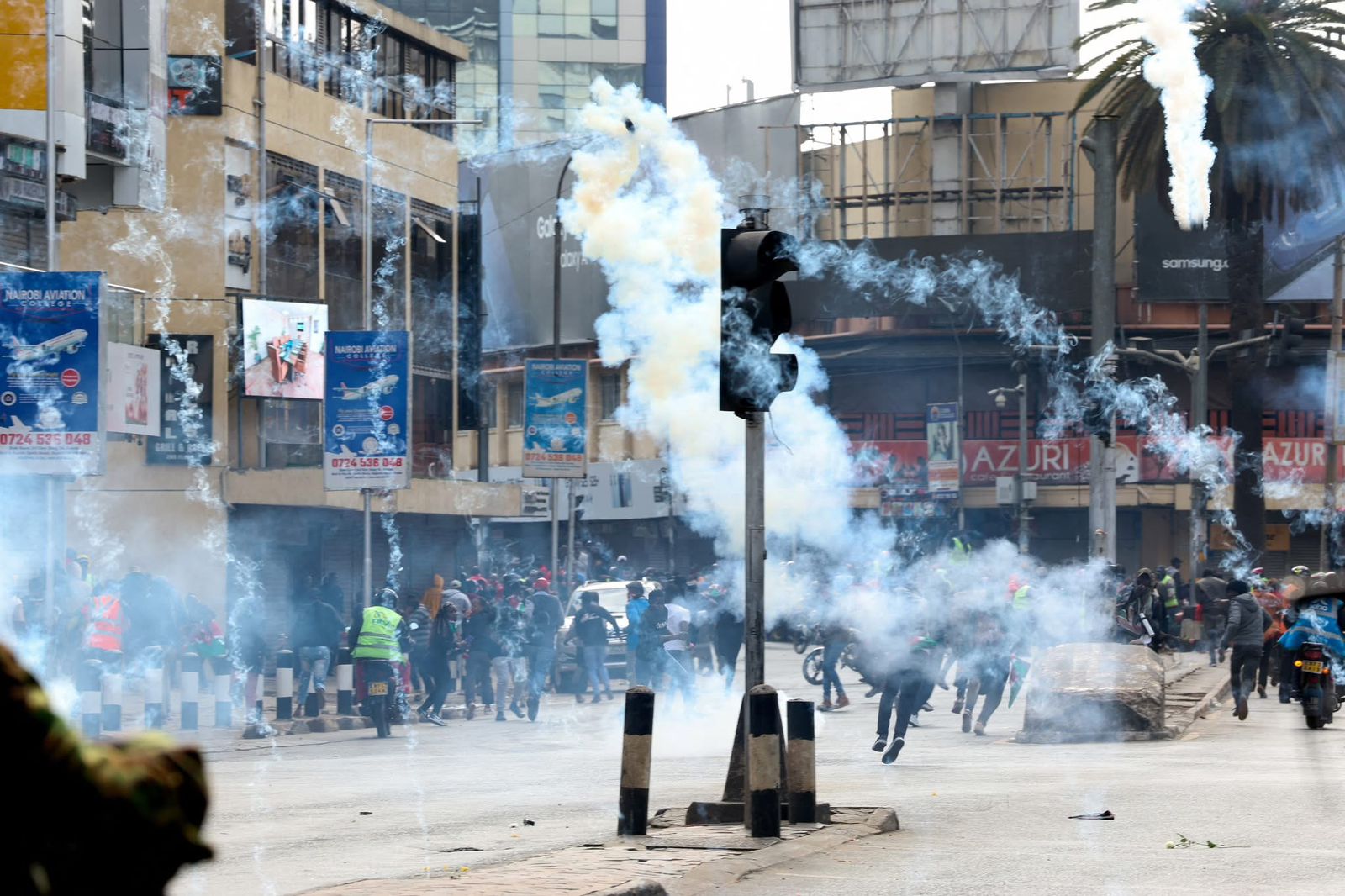
Protests erupt across major towns in Kenya
One year after the 2024 historic anti-tax protests that saw Kenya’s parliament stormed and over 60 lives lost, thousands of Kenyans, predominantly young men, flooded the streets of Nairobi and other cities once again.
The protests, initially sparked by opposition to a controversial finance bill, evolved into a broader movement, with demonstrators chanting anti-police brutality slogans.
“Stop killing us,” and “End police impunity” reverberated through downtown Nairobi as protesters repeated their demand for better governance, transparency, and accountability from the state.
”We are here to remember our fallen comrades, we will do a candle vigil in remembrance of them,” some of the protestors said.
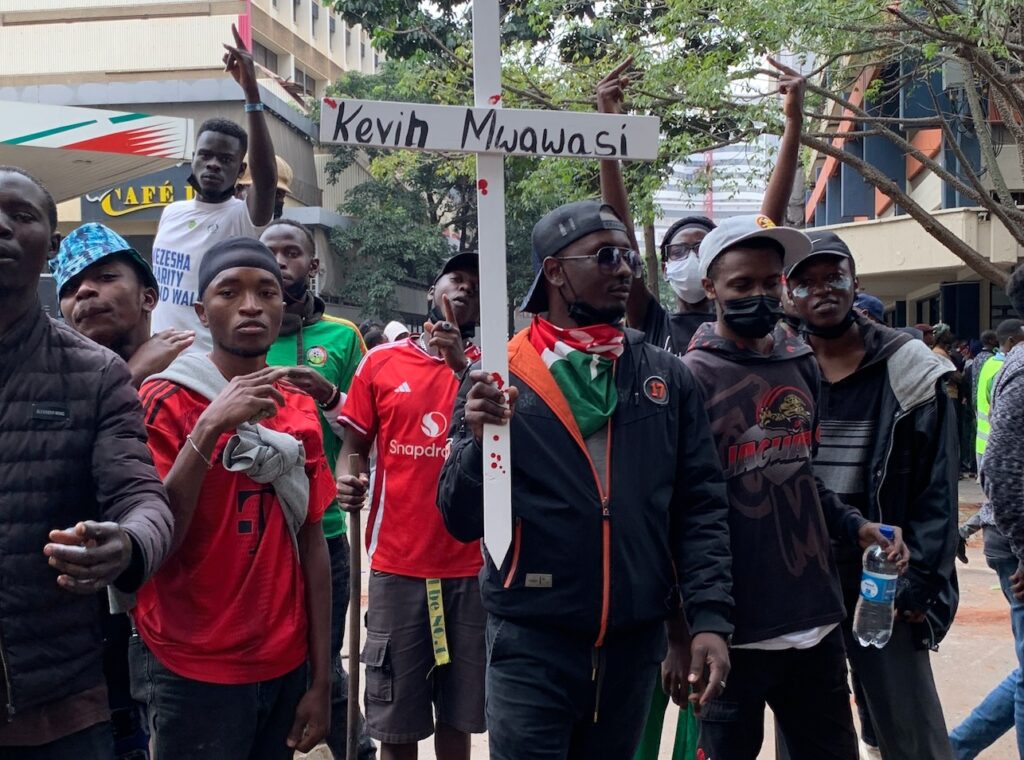
Roads leading into the Central Business District were barricaded by dawn. Authorities closed off other main thoroughfares into downtown, forcing commuters to walk the rest of the way.
Security was visibly intensified around government installations.
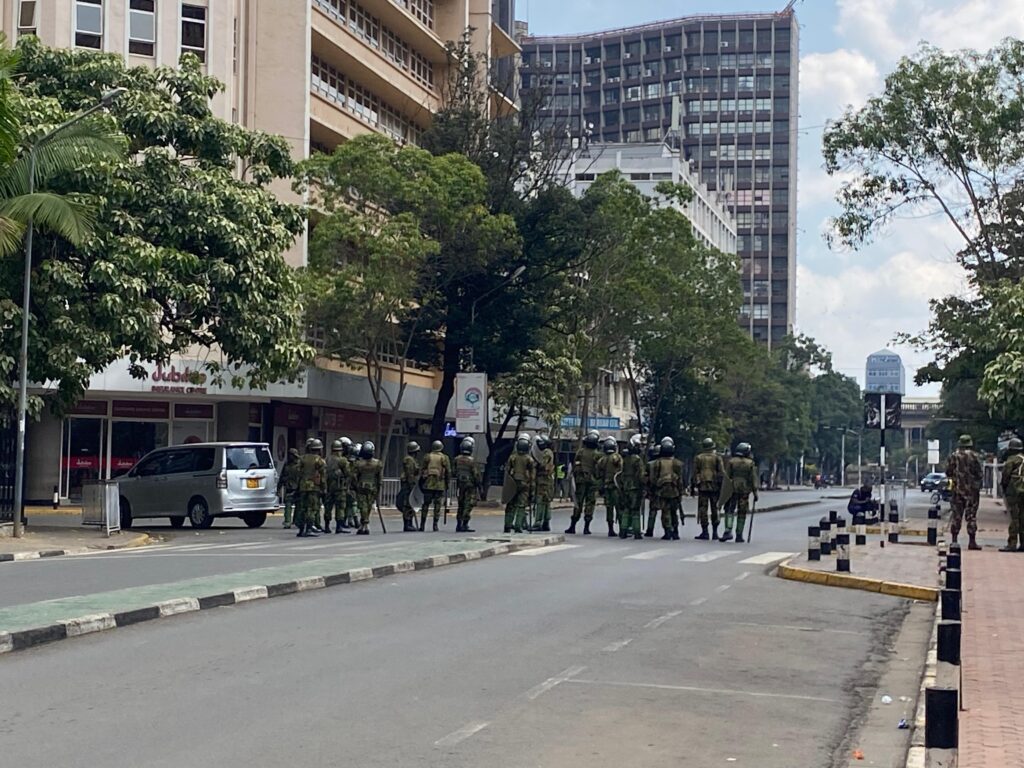
Razor wire and heavily armed officers sealed off all approaches to the State House and Parliament, signaling a government on high alert following last year’s breach.
This year’s demonstrations, however, were met with heavy security measures, media restrictions, and violent clashes.
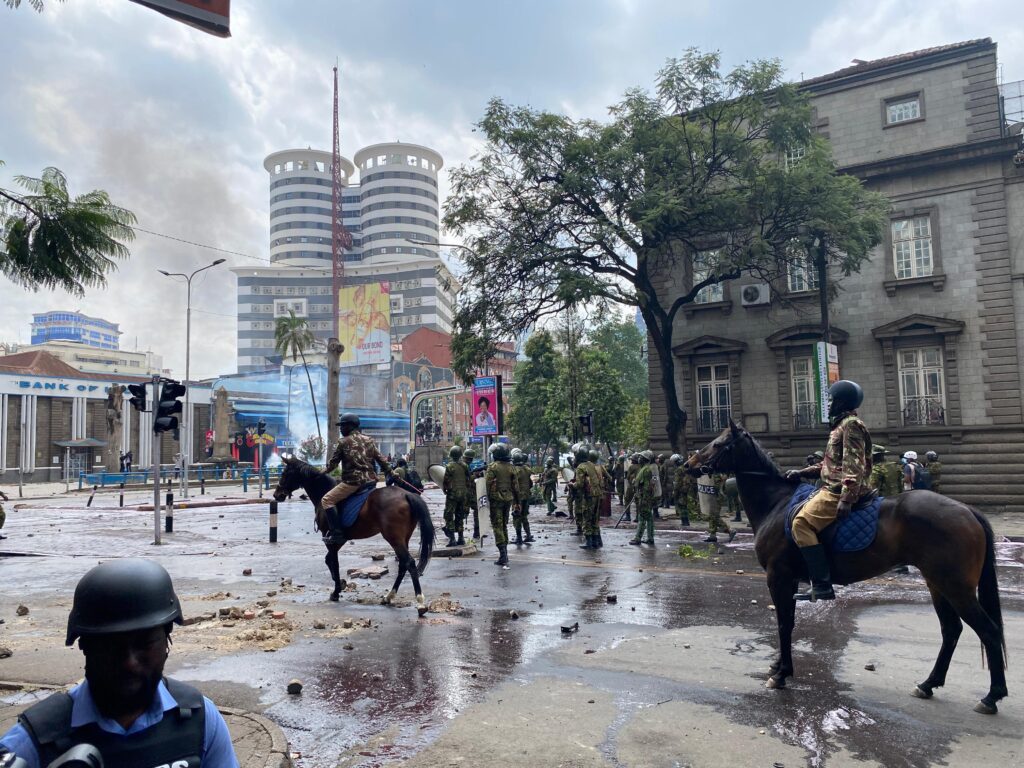
The anniversary protests were further inflamed by the recent death of 31-year-old blogger and teacher Albert Ojwang, who died in police custody on June 8, 2025, after being arrested for allegedly defaming Deputy Inspector-General Eliud Lagat on social media.
The Kenya National Commission on Human Rights received reports of eight fatalities in nationwide protests on Wednesday.
Following the outbreak of protests in major towns, President William Ruto appealed for calm, urging citizens to refrain from violence and the destruction of public property.






